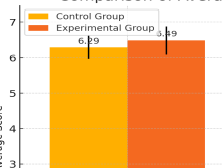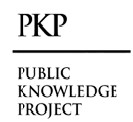Designing a Short Term Endgame Training System to Enhance Decision Making Speed for Chess Players
Keywords:
endgame exercises, decision making speed, chess club students, Hanoi Pedagogical University 2Abstract
By employing established scientific methods in sports science, this study devised six clusters of exercises aimed at developing comprehensive endgame calculation skills, alongside three evaluative tests, for members of the Chess Club at Hanoi Pedagogical University 2. A pedagogical experiment demonstrated marked improvements in students’ calculation proficiency and cognitive processing speed. These findings confirm the efficacy of the prescribed exercises in strengthening endgame calculation ability and decision making competence, thereby contributing to the overall quality of chess performance among the club’s student participants.
Downloads
References
Aagaard, J. (2010). Excelling at technical chess: Learn to identify and exploit small advantages. Quality Chess.
Bart, W. M. (2014). On the effect of chess training on scholastic achievement. Frontiers in Psychology, 5, 762. https://doi.org/10.3389/fpsyg.2014.00762
Charness, N., Reingold, E. M., Pomplun, M., & Stampe, D. M. (2001). The perceptual aspect of skilled performance in chess: Evidence from eye movements. Memory & Cognition, 29(8), 1146–1152. https://doi.org/10.3758/BF03206384
de Groot, A. D. (1965). Thought and choice in chess. Mouton & Co.
de la Villa, J. (2015). 100 endgames you must know: Vital lessons for every chess player. New In Chess.
Dvoretsky, M. (2014). Dvoretsky’s endgame manual (4th ed.). Russell Enterprises.
Elkies, N. D. (1999). On numbers and endgames: Combinatorial game theory in chess endgames. arXiv preprint. https://doi.org/10.48550/arXiv.math/9905198
Emms, J. (2004). The survival guide to rook endings. Everyman Chess.
Ferguson, R. C. (1995). Chess in education: Research summary. Chess Research Associates.
Fine, R., & Benko, P. (2003). Basic chess endings. McKay.
Gobet, F., & Jansen, P. (1994). Training in chess: A scientific approach. Journal of Chess Research, 1(1), 16–28.
Howard, R. W. (2014). Learning to play chess: Resources for the beginning player. Applied Cognitive Psychology, 28(5), 697–699. https://doi.org/10.1002/acp.3040
Janičić, P., Marić, F., & Maliković, M. (2018). Computer-assisted proving of combinatorial conjectures over finite domains: A case study of a chess conjecture. arXiv preprint. https://doi.org/10.48550/arXiv.1801.07528
Lakdawala, C. (2021). Composed chess studies: The hidden path to improving. Chess.com. https://www.chess.com/article/view/composed-chess-studies-path-to-improving
Maharaj, S., Polson, N., & Turk, A. (2022). Chess AI: Competing paradigms for machine intelligence. Entropy, 24(4), 550. https://doi.org/10.3390/e24040550
Mednis, E. (1996). Practical endgame lessons. Cadogan Books.
Müller, K., & Lamprecht, F. (2001). Fundamental chess endings. Gambit Publications.
Nunn, J. (2009). Understanding chess endgames. Gambit Publications.
Seirawan, Y. (2003). Winning chess endings. Everyman Chess.
Silman, J. (2007). Silman’s complete endgame course: From beginner to master. Siles Press.

Downloads
Published
How to Cite
Issue
Section
License

This work is licensed under a Creative Commons Attribution 4.0 International License.
Current Clinical and Medical Education













